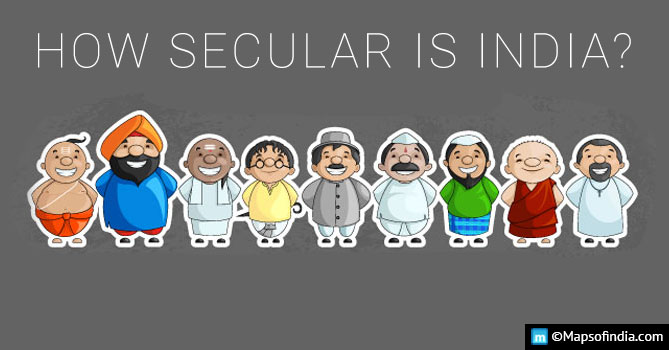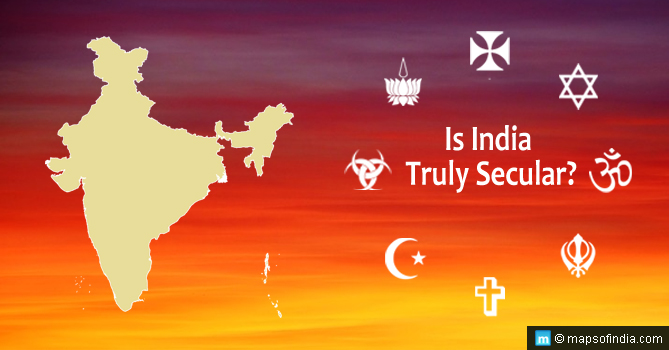India is a land of several different religions and cultures that have co-existed in harmony for thousands of years. Indian diversity has been the strength and basis of modern India, the country’s inclusive nature is what sets it apart from any other country in the world. Secularism plays an important role in a complex social fabric like India where since time immemorial different religions have come from various parts of the world and lived cohesively with occasional quarrels. The concept of secularism was missing from the Indian Constitution until 1976, when the 42nd Amendment of the Constitution was adapted and enacted. However, the concept of secularism and its interpretation in Indian context is still vague and unclear even among the courts and the experts as compared to the interpretation of secularism in West.
The challenges and changing nature of secularism
Through the collective reading and assessment of many of Indian Constitution’s provisions and rights has the constitution acquired the secular character, rather than the mere presence of words in the Preamble. At one point, the idea of a secular, pluralistic India, tolerant of all sects and religions was considered to be the core of the Indian society. But, the polarisation of sects and religions for petty vote bank politics, and incidents since the early 1990s have altered the state of reality that was one of the pillars of India. Secularism’s meaning in India has changed in the course of history, initially it was considered to be anti-majoritarian and pro-minority. During this period, several political parties in their efforts to consolidate and appease the minority used secularism as a weapon to mobilise them. However, at present, in order to consolidate the majoritarian sects few parties have began working on pro-majoritarian form of secularism in the Indian context. Some in the political realm have opposed the concept of secularism altogether as it has failed to serve the purpose, while some feel that India without secularism would create a volatile atmosphere throughout the country.
Indian Secularism and the differences from the Western concept
Indian concept of secularism is a stark contrast to the Western interpretation of secularism. In the West it is based on three major pillars freedom of religion, the separation of state and religion, equal citizenship to each citizen regardless of his or her religion. Although the Indian Constitution follows the two out of three pillars, but it fails to follow the most important one, as religion actively interferes in the functioning of state through direct or indirect means. Even though the Constitution of India is considered to be the supreme law in India, but the intricacies of the Indian society allows personal laws such as Shari’a and Hindu Code Bill to exist as long as it does not affect the Fundamental Rights of an individual and hampering the peace and harmony of the society.
The Western variation deals with total non-interference of state and religion in the functioning of each other. The power wrests with the state and it is allowed to curtail the rights if the religion is causing hindrance in the functioning of state. On the other hand, India focused on an inclusive form of secularism by allowing the individual to enjoy their Fundamental Rights while creating an atmosphere of peace and harmony. The concept is not restricted to the question of how the religious groups are to be treated. Instead, the essence of secularism lies in forging a positive relation between the state and religion in the social and cultural realm.
India’s dilemma with Secularism and the way forward
India has struggled in terms of forming a secular society with a neoliberal state that has practically destroyed the legitimacy of shared ethos, superseding it with an aggressive animal spirits since the country embarked on the journey of economic liberalisation. At the same time, decline in the might of the Congress party and the rise of right-wing politics, jingoistic fervour in part coinciding with the rolling back of a welfare state replaced by a voluntary association based on the private ethic of individual responsibility have been deteriorating the ideals of secularism enshrined in the Constitution.
The essence of secularism lies in to build friendships with varied social groups and overcome xenophobia that is destructing the social fabric of the Indian society. In a wider canvas like India where differences exists in terms of different religions and cultures it is necessary to strike at the root of xenophobia instead of focusing on the way the state deals with such religious differences. The state’s role also needs to curtailed and focus on forging deep rooted ties not only between different religions but also amongst different cultural groups, ethnic, regional, linguistic, and caste.





